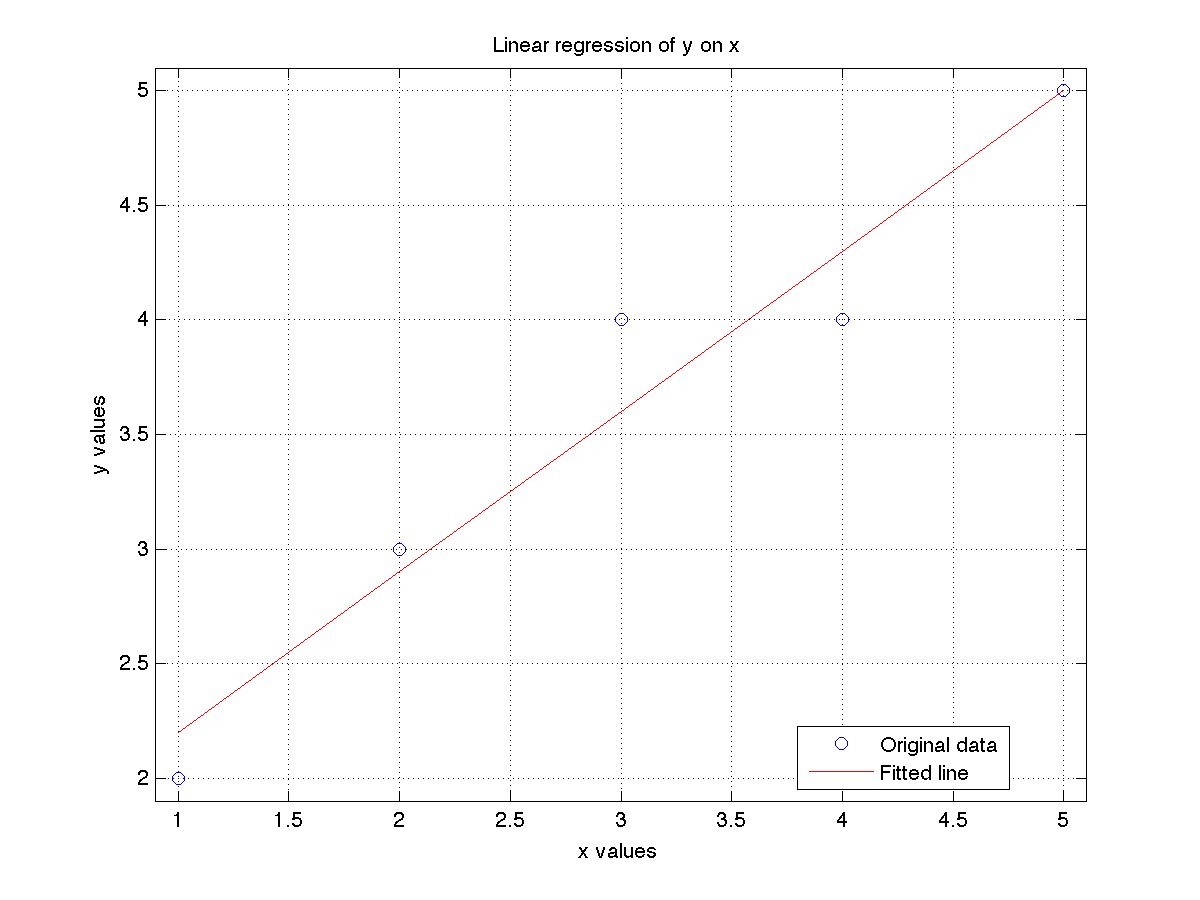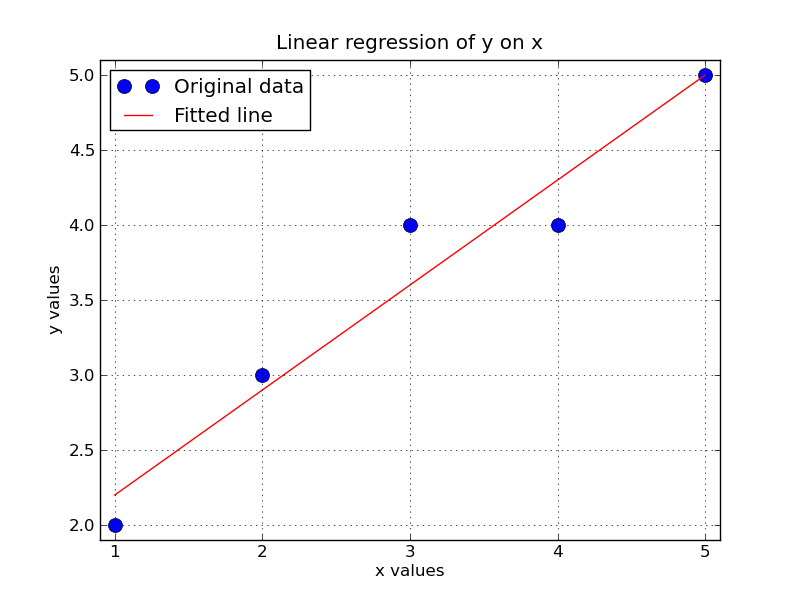Software tutorial/Least squares modelling (linear regression)
Jump to navigation
Jump to search
One of the best packages for fitting least squares models, in addition to all sorts of other statistical manipulation of data is the R language. The following pages from the 4C3 (Statistics for Engineering) website will help you:
However, here is a tutorial on how you can use MATLAB or Python to fit a least squares model.
- MATLAB: use the regress.m and regstats.m function
- Python: use the numpy.linalg.lstsq function
| MATLAB | Python |
|---|---|
x = [1, 2, 3, 4, 5];
y = [2, 3, 4, 4, 5];
y = y(:);
n = numel(x);
X = [ones(n,1) x(:)];
a = regress(y, X) % Contains a_0=a(1) and a_1=a(2)
plot(x, y, 'o')
hold('on')
grid('on')
plot(x, X*a, 'r')
xlabel('x values')
ylabel('y values')
title('Linear regression of y on x')
xlim([0.9, 5.1])
ylim([1.9, 5.1])
legend({'Original data', 'Fitted line'}, 'Location', 'Best')
% Additional calculations
resids = y - X*a; % resids = e = y - Xa
RSS = resids' * resids; % residual sum of squares
TSS = sum((y - mean(y)).^2); % total sum of squares
R2 = 1 - RSS/TSS;
std_error = sqrt(RSS/(n-numel(a)));
std_y = sqrt(TSS/(n-1)); % just the same as std(y)
R2_adj = 1 - (std_error/std_y)^2
|
import numpy as np
from matplotlib.pyplot import *
x = np.array([1, 2, 3, 4, 5])
y = np.array([2, 3, 4, 4, 5])
n = len(x)
X = np.vstack([x, np.ones(n)]).T
a = np.linalg.lstsq(X, y)[0]
# Plot the data along with the fitted line:
plot(x, y, 'o', label='Original data', markersize=10)
plot(x, np.dot(X,a), 'r', label='Fitted line')
xlabel('x values')
ylabel('y values')
title('Linear regression of y on x')
grid('on')
xlim([0.9, 5.1])
ylim([1.9, 5.1])
legend(loc=0)
# Additional calculations
resids = y - np.dot(X,a) # e = y - Xa;
RSS = sum(resids**2) # residual sum of squares
TSS = sum((y - np.mean(y))**2) # total sum of squares
R2 = 1 - RSS/TSS
std_error = np.sqrt(RSS/(n-len(a)))
std_y = np.sqrt(TSS/(n-1)) # just the same as std(y)
R2_adj = 1 - (std_error/std_y)**2
|

